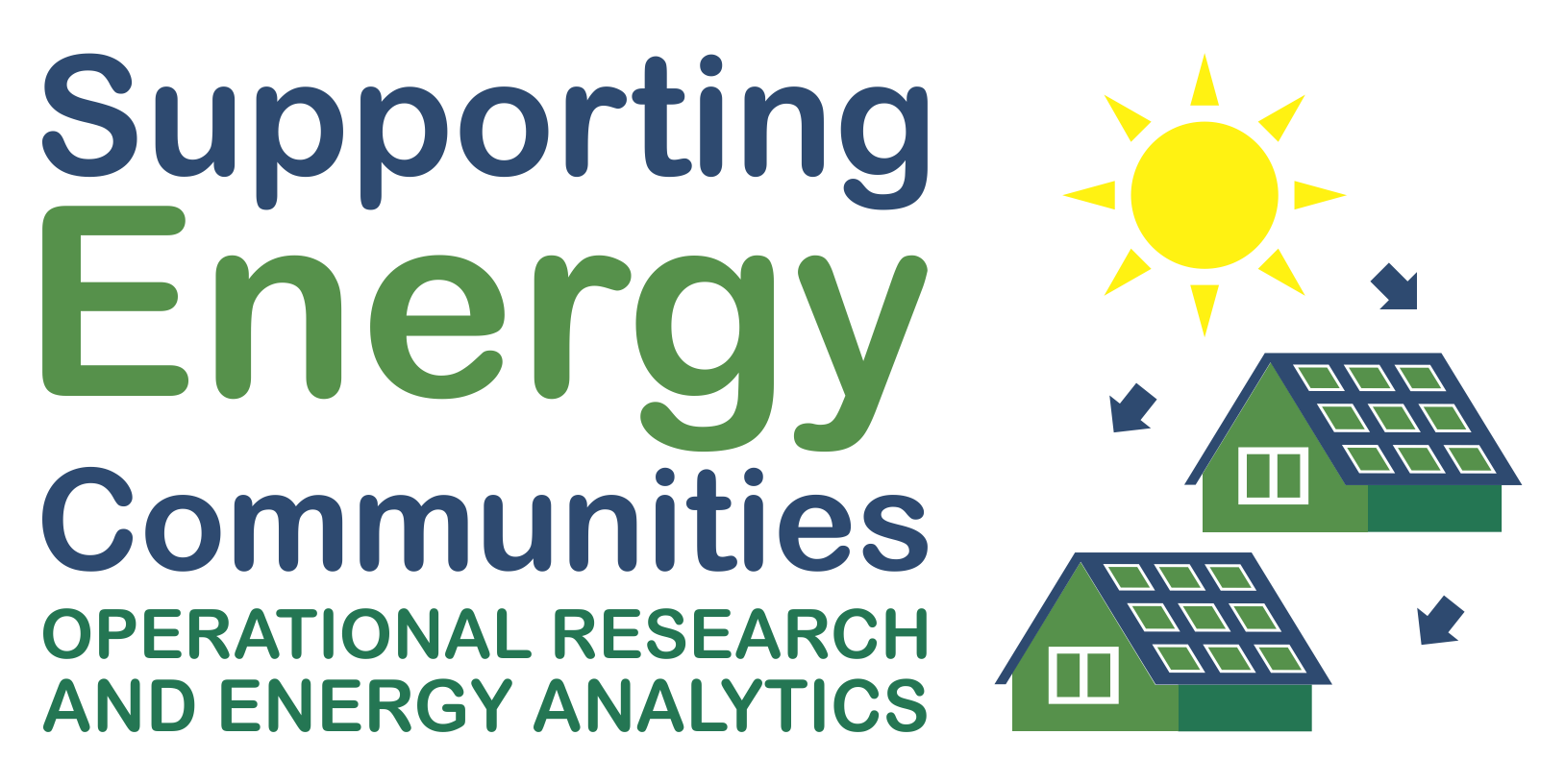Partners


INRIA - INOCS team
Institution description
INRIA is the French national research institute for digital science and technology. World- class research, technological innovation and entrepreneurial risk are its DNA. In 200 project teams, most of which are shared with major research universities, more than 3,500 researchers and engineers explore new paths, often in an interdisciplinary manner and in collaboration with industrial partners to meet ambitious challenges. As a technological institute, Inria supports the diversity of innovation pathways: from open source software publishing to the creation of technological startups (Deeptech).
The INOCS team aims to develop new models, algorithmic techniques and implementations for problems with complex structure according to three types of optimization paradigms: mathematical optimization, bilevel optimization and robust/stochastic optimization.
In INOCS, we consider that an optimization problem presents a complex structure (CS) when two types of decision are addressed jointly and are interrelated. Examples are decisions of different types/nature (i.e. strategic, tactical or operational), and/or presenting some hierarchical leader-follower structure. CS problems lead to extremely challenging problems since a global optimum with respect to the whole sets of decision variables and constraints must be determined.
INOCS models and develops innovative solution methods for CS problems according to three types of optimization paradigms: mathematical optimization, bilevel optimization, and robust/stochastic optimization. CS problems are pervasive. They appear in a broad range of application fields such as:
- the energy sector where decisions of distinct nature such as production and distribution are jointly determined;
- supply chain management where location and routing decisions have to be defined jointly even if they refer to different time horizons;
- revenue management where the determination of prices for services or products requires taking explicitly into account the strategic consumers’ behaviour.
Who’s working on the project
-
Luce Brotcorne (female) is a Senior researcher (Directeur de Recherche) currently in charge of the Integrated Optimization with Complex Structure (INOCS) project team of INRIA Lille-Nord Europe. The team contains about fifteen French and foreign researchers. She has been working on the optimization of transport systems for more than 25 years old and has been using these instruments in the energy sector for more than 10 years. Its centres of interest are the study of bi-level pricing problems, of equilibrium problems and of stochastic optimization. She is co-author of more than 20 scientific papers or book chapters and has presented more than 70 papers at national and international conferences. She is Vice President of the EURO-Working Group for pricing and revenue management. She has been, and is always, involved in industrial projects in the field of transport and energy including the FUI LUMD project on urban logistics, the PGMO project - carried out with EDF (R&D), on the determination of tariffs within the framework of the “Demand Side Management in energy”. She has been and is the coordinator two ANR projects (RESPET and pi-comodalité).
-
Hélène Le Cadre is a tenured Inria Researcher, within the INOCS team, working in Lille, France. Previously, she worked as a Research Fellow and Assistant Professor with Ecole des Mines de Paris, in Sophia Antipolis, France. She was a Visiting Researcher at the Center for Operations Research and Econometrics (CORE), at the Catholic University of Louvain, in Louvain-la-Neuve, and, later, a Senior Researcher at VITO, within the energy market team, in Belgium. She received the M.Sc.A. degree from the University of Rennes and the ENS Rennes, Dipl. Ing. in Information Science from Institut Mines-Télécom Atlantique, and the Ph.D. degree in Applied Mathematics from the University of Rennes. Her current research interests revolve around game theory, optimization, learning in games, with applications in energy, networks, and societal-scale system problems.
-
Juan P. Sepúlveda Adriazola was born in Osorno, Chile, in 1995. He received the B. Sc. and M. Sc. degrees in electrical engineering from Universidad Tecnica Federico Santa Maria (UTFSM), Valparaiso, Chile, in 2016 and 2021, respectively. He is currently pursuing a Ph.D. degree in computer science with the INOCS team under the supervision of Luce Brotcorne and Hélène Le Cadre. His research interests include bilevel optimization, optimal control strategies, and game theory.
Role in the project
INRIA lead a work package devoted to the study of problems of deciding how to dispatch and share RES generation, and how to address demand side management problems. INRIA will lead this task to 1) Develop bilevel mathematical optimisation models to define pricing strategies taking into account the utility maximisation process of the LEC members; 2) Propose fairness measures and appropriate objective functions in ensembled models and algorithmic approaches by evaluating and analysing solutions & scenarios from other WPs.
*Their participation in the SEC-OREA project is supported by the ANR
IPE
Institution description
The Institute of Physical Energetics (IPE), located in Riga, Latvia, is a state research institute specializing in comprehensive energy system research. Its expertise encompasses energy resource exploration, production, transmission, and end-user integration, with a strong emphasis on technological advancements and sustainable practices.
As a key player in shaping national and EU energy and climate policies, IPE's esteemed researchers actively contribute to both national energy directives and EU Framework Program projects. Additionally, IPE engagement extends to wider energy research alliances such as the European Energy Research Alliance and Intelligent Energy-Europe.
Moreover, we are actively involved in regional research initiatives funded by ESF, ERDF, and other institutions. This involvement underscores our commitment to advancing energy research and innovation.
Who’s working on the project
Prof. Anna Mutule, the Head of Smart Grid Research Centre of IPE is the SEC-OREA Latvian group lead. She has 20 years research experience and knowledge in the field of energy management, local energy systems, renewable energy source applications, energy efficiency solutions and smart grid technologies.
Dr. Victor Astapov, the SEC-OREA principal investigator, joins us as a visiting researcher from Tallinn University of Technology. His research focuses on the integration of Renewable Energy Sources into the grid, the operation of Electrical Vehicles, and Battery Energy Storage Systems. Dr. Astapov is also responsible for grid modeling and simulations, driving innovation in sustainable energy solutions.
Mg.sc.ing Evita Kairisa is the SEC-OREA investigator and PhD student at the Institute of Power Engineering of RTU, working under the supervision of Anna Mutule. Her research interests include the utilization of open-source data to support Local Energy communities in decision-making processes, as well as explore the potential of open data to create digital twins for LECs.
Dr. Olegs Borscevskis, the SEC-OREA investigator, focuses his research on Renewable Energy Sources and urban and suburban power supply systems. His expertise lies in analyzing loads and voltage levels, optimizing electricity supply, and developing models to determine the optimal voltage level.
Dr. Tarmo Korotko, from 26.04.2022–25.04.2023 the SEC-OREA postdoctoral researcher, representing Tallinn University of Technology. His research endeavors revolve around assessing Power System Asset Dispatch under various Local Energy Community Business Models, establishing optimization frameworks tailored for Local Energy Communities, and conducting Load Flow Modeling in Electric Power Systems within Local Energy Communities.
Role in the project
IPE leads WP5, which focuses on examining the impact and interaction of LES on distribution network architecture and operation. Additionally, IPE serves as the power system advisor to other WPs. Their participation in the SEC-OREA project is supported by the Latvian Council of Science.
University College Dublin
Institution description
University College Dublin (UCD) is the largest public university in Ireland. Comprised of six Colleges which span the academic disciplines, UCD is a research-intensive global university ranked within the top 1% of higher education institutions worldwide.
Who’s working on the project
-
Assoc. Prof. Paula Carroll from the School of Business is the SEC-OREA project coordinator. She researches the application of Business Analytics and Operations Research techniques to solve energy systems integration problems.
-
Dr Debajyoti Biswas from the School of Business researches optimisation problems and solution approaches for problems in industry 4.0 and sustainable operations.
-
Dr Conor Sweeney from the School of Mathematics and Statistics is a Principal Investigator and researches Forecasting for Energy Systems Climate modelling.
-
James Fitzpartick joined the UCD team from November 2023 to March 2024 focusing on the use of machine learning to solve a Local Energy Community’s renewable energy optimisation problems.
-
Yashita Jain joined in June 2024 to develop statistical models of PV generation.
-
Manya Singh joined in September 2024 to develop Reference Load Profiles of Local Energy Community electricity demands.
James, Yashita and Manya are funded by the Irish Research Council
Role in the project
UCD are the project coordinator and lead a work package on Digitalisation and Analytics, and another work package on Energy Scenarios for LECs. Their participation in the SEC-OREA project is supported by the IRC - Irish Research Council.
Université libre de Bruxelles
Institution Description
The Université libre de Bruxelles (ULB) is a French-speaking research university in Brussels, Belgium. ULB is one of the two institutions tracing their origins to the Free University of Brussels, founded in 1834 by the lawyer and liberal politician Pierre-Théodore Verhaegen.
ULB has 12 faculties that cover all the disciplines, closely combining academic input and research. It offers almost 40 undergraduate programmes and 250 graduate programmes (among them 23 Masters fully taught in English) . It also partners 20 Doctoral schools, with almost 1,600 PhD in progress.
Four scientific Nobel Prizes, one Fields Medal, three Wolf Prizes are further evidence of the University’s longstanding tradition of excellence. The Université libre de Bruxelles is an active member of the Research Area: ULB has received HR Excellence in Research award from the EU (EURAXESS) and also EU funding to hire post-doctoral researchers (COFUND program), for example. Over the past few years, it has obtained 49 Grants (24 Starting, 12 Consolidator, 11 Advanced, 1 Synergy and 1 Proof of Concept Grants) from the European Research Area (ERC) to finance research in Medicine, Mathematics, Political Science, Economics, Physics, etc. In addition, the University’s Institute for European Studies is recognized as a “Jean Monnet European research centre” for its work on European integration.
Who’s working on the project
-
Prof. Bernard Fortz from the Computer Science Department is the Principal Investigator for the project at Université libre de Bruxelles. His main research directions related to the project are the development of robust and stochastic optimisation models for energy dispatch and the application of decomposition methods to solve large, realistic instances of these models.
-
Cristian Aguayo is a PhD student in the Computer Science Department of ULB, working under the supervision of Bernard Fortz. In the project, he is responsible for the model developments and algorithms implementation, as well as the integration of data provided by the other partners.
Role in the project
ULB lead a work package on Efficient LEC Model Decomposition / Ensembling. This work package aims to:
- Develop efficient algorithmic techniques (decomposition and ensembling methods) to solve realistic size instances using deterministic data.
- Extend to a robust approach to address the uncertainty defined in the scenarios/models of the other working pcakages, including the development of scenarios generated by the work package on forecasting techniques.
Their participation in the SEC-OREA project is supported by the F.R.S.-FNRS.
